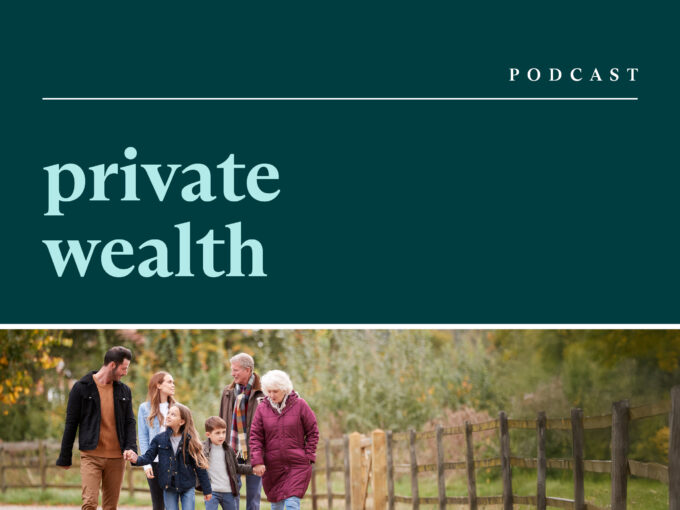Landowners risk handing over £300 million to unprepared heirs as wealth transfer looms
16 May 2024
Saffery and Historic Houses today reveal the findings of a new study of some of the UK’s largest and most valuable estates and properties.
Among the findings, almost half (42%) of survey respondents, representing combined estate values of more than £300 million, acknowledged that they do not currently have a plan or process in place to prepare the next generation to run the family estate – presenting a significant risk to the ongoing management and future resilience of some of the country’s most important real estate and natural assets.
Taken together, the study’s respondents represent estates with a combined total value of more than £1 billion, and almost 250,000 acres of land, comprising either, or a combination of, residential property (82%), farmland (78%) or a historic house (62%).
Transformation and new land uses
- Alongside keeping the estate within the family, the long-term viability of the estate as source of family income was the most frequently cited concern of owners (53%) looking towards the future.
- The study revealed this is leading owners to consider diversification strategies and alternative uses for estate assets, including land, for income generation.
- Renewable energy generation (82%) is the most popular diversification strategy, followed by other sustainable ventures including leveraging the Biodiversity Net Gain scheme (53%) and Carbon sequestration (50%).
Tax considerations
- Inheritance tax (IHT) liabilities have hit record levels in recent years, reaching almost £6 billion in 2020-21 (HMRC) compounded by frozen allowances and the effects of fiscal drag.
- Despite this, the Saffery and Historic Houses research found that only around half (56%) of owners consider managing the exposure of the estate to IHT as the primary purpose of a succession plan. This indicates estate owners are taking a more holistic view of succession, with tax only one factor among many others to be considered.
- At the same time, the survey suggests a potential lack of understanding as to the potential reliefs available to estate owners. For example, almost a third (31%) of estate owners are unaware of Conditional Exemption from IHT.
Ben Cowell OBE, Director General of Historic Houses, said:
“The sustainability of important historic houses depends upon them being in stable ownership. This is why the passage of properties from one generation to the next is such an important issue for Historic Houses member properties.
“Having a plan for how these places are to be passed on is therefore critical. Most owners have developed plans on these lines. But a worrying number have not yet begun this work, it would seem.
“Nevertheless, these survey findings also give some reasons for hope. All generations recognise the significance of diversifying income streams on estates, of tackling carbon emissions, and of promoting nature recovery.
“Ultimately it’s these issues, rather than purely tax considerations, that are driving the next generation’s thinking about the inheritance that they will be taking on. And this is exactly as it should be.”
David Chismon, Partner and Head of Land and Rural Group at Saffery:
“The issue of succession has perhaps never been higher on the agenda, partly thanks to the television show ‘Succession’ on HBO and partly due to the fact that, globally, around a $100 trillion is set to be passed to the next generation in the so-called great wealth transfer over the next couple of decades. This represents a significant opportunity to redeploy wealth, but a lack of planning, as well as a lack of engagement with the next generation, on behalf of current owners poses a major risk – including to the preservation of some of the nation’s most important historic, cultural and natural assets.
“Effective succession planning, including preparing the next generation to assume control of the family’s legacy and, in some cases, main source of income, has a much wider role, not least maintaining family cohesion and minimising the risk of disputes, as well as protecting assets from being broken up or liquidated.
“In addition, any perception that the succession planning is primarily about minimising inheritance tax dues are overly simplistic. Inheritance tax is of course a factor for many families, but only around half of our respondents cited minimising it as the main function of a succession plan.
“Interestingly, as families look to the future there is a real interest not just in keeping estates intact, but exploring new ways to keep them viable and creating value for the long term – including diversification into renewables and biodiversity. These land uses will clearly be important for estates in the future.
“At the same time, it was fascinating to see evidence in our survey responses of a real shift away from outdated notions of who can inherit and why. So-called primogeniture, which generally has meant inheritance by the first-born male heir, was still a favoured succession method for many estates until relatively recently. Estate owners still want their wealth and property assets to stay within the family of course, but gender, family name and title do not factor as important considerations – instead there is a much greater focus on whether the intended heir actually wants to take on the responsibility that comes with inheritance, and how this is balanced with other interests – including career aspirations.
“Both in terms of general succession planning, and establishing strategies for estate diversification, there is a clear need for managing expectations and good communication between family members. Mutual understanding and effective handover planning is key.”
Read more about the findings from our succession survey
For any further queries regarding our research or your own succession planning, please contact David Chismon.
Contact Us
Partner, Bournemouth
Key experience











